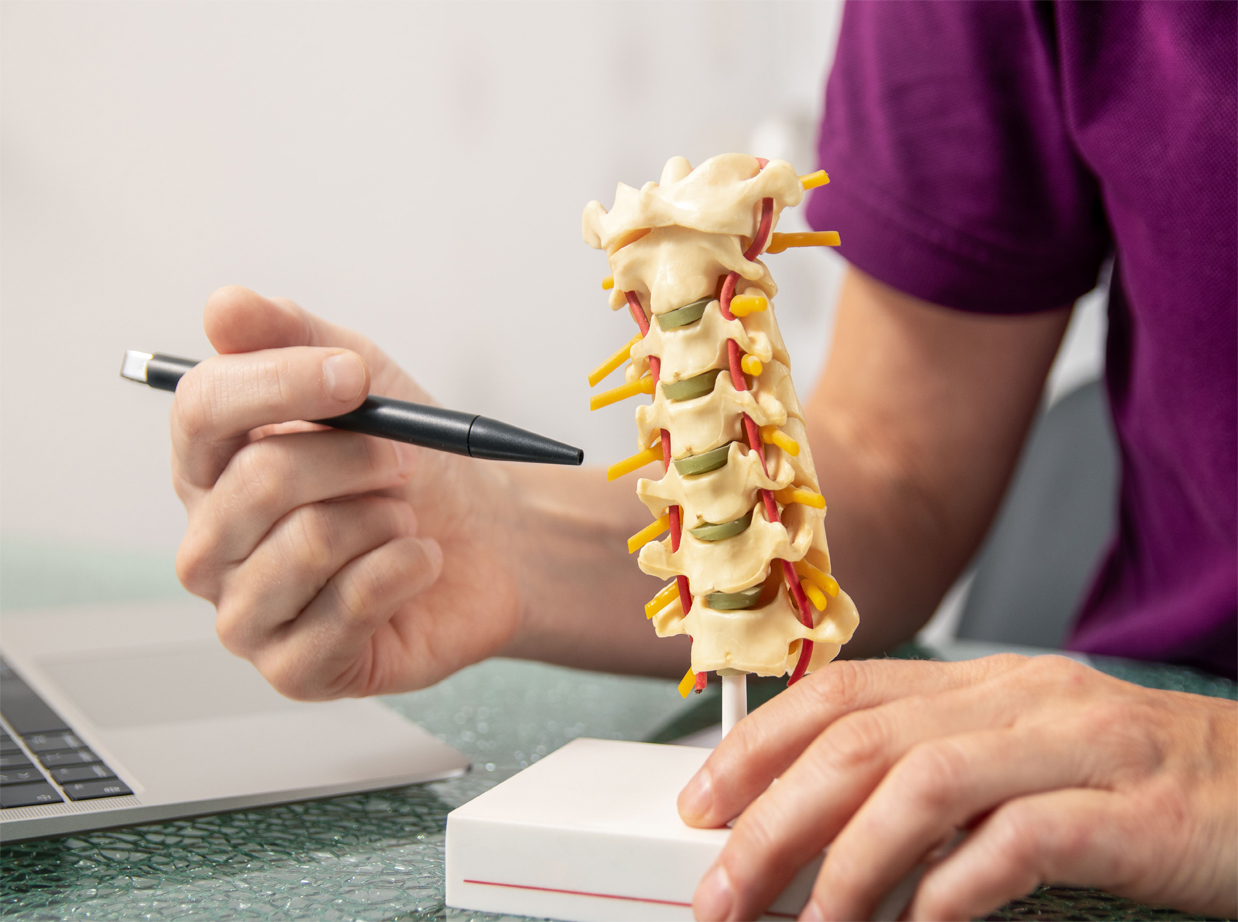What is Degenerative Disc Disease?
When the discs between your vertebrae are damaged, it is called degenerative disc disease. Despite its name, it is not actually a disease; it develops because of stress, injury, or aging in the spine. Since they act as a cushion or shock absorber for your spine, these discs gradually become less flexible and lose moisture as you grow older. As they deteriorate they become less effective in providing good support, which might result in pain and various problems.
Most cases of DDD happen in the lower back (lumbar) or the neck (cervical) area, though it can develop in other areas. Here at Remix Medical, Houston-based doctors focus on evaluating DDD and explaining it is affecting your life.
Common Symptoms
Some people do not feel pain due to degenerative disc , but for many, the condition brings constant discomfort that affects their daily activities and quality of life. Some of the symptoms are:
- Continuous ache in the lower back or neck
- Aggravated pain during sitting, bending, or lifting
- There is a sensation of numbness or tingling in your hands or feet
- Muscles affected by the nerve usually become weak.
- Pain that eases as a person walks or moves.
Symptoms of degenerative disc disease may increase and then go away after some time. While some individuals suffer from flare-ups that end relatively fast, others always feel the pain. Should these symptoms match your condition, the doctors in Houston are happy to help find out what is causing your pain.
Causes and Risk Factors
In most cases, degenerative disc disease starts developing as people age naturally. Even without pain, people at age 40 tend to have some signs of damaged discs in their spinal cord. Many aspects can play part in speeding up this degeneration, for example:
- Genetics – Having spine problems in your family can raise your chance.
- Injury-Accidents,falls possibly resulting in spinal injuries, can result in disc injuries as well.
- Lifestyle- Such as smoking, having bad posture, or not exercising enough, may be factors.
- Occupation – Anything that requires frequent heavy lifting might damage the discs.
- Obesity- When a person is obese, their spine and the spine’s discs take on extra pressure.
When you visit Remix Medical, we explore your past conditions, what you do every day, and any risks so our doctors in Houston can make a correct diagnosis.
What You Can Anticipate and What It Mean
To find out if you have degenerative disc disease, your doctor will examine you well and carefully, review both your symptoms and your previous medical records. XRays or MRIs may be used to check if there is enough space between vertebrae, whether the disc is well hydrated, and if the spine is degenerating. We always make your needs and concerns a priority when guiding you during the evaluation process.
Remember that in some cases, degeneration in the disc does not lead to pain. Therefore, it is very important to have a correct diagnosis by professionals. The team in Houston helps figure out if your issues come from DDD or are linked to another condition.
Reliable Spine Care for Houston at Remix Medical.
Everyone experiences frustration and fatigue due to daily back or neck pain, and there is no need for you to manage it by yourself. At Remix Medical, our experienced doctors in Houston are devoted to helping patients gain knowledge about their spinal problems and get the information they require.
Book a consultation at your earliest convenience for better visibility and more control. You can book your appointment online or call our helpline to find out more about your spine and how we can assist you.


